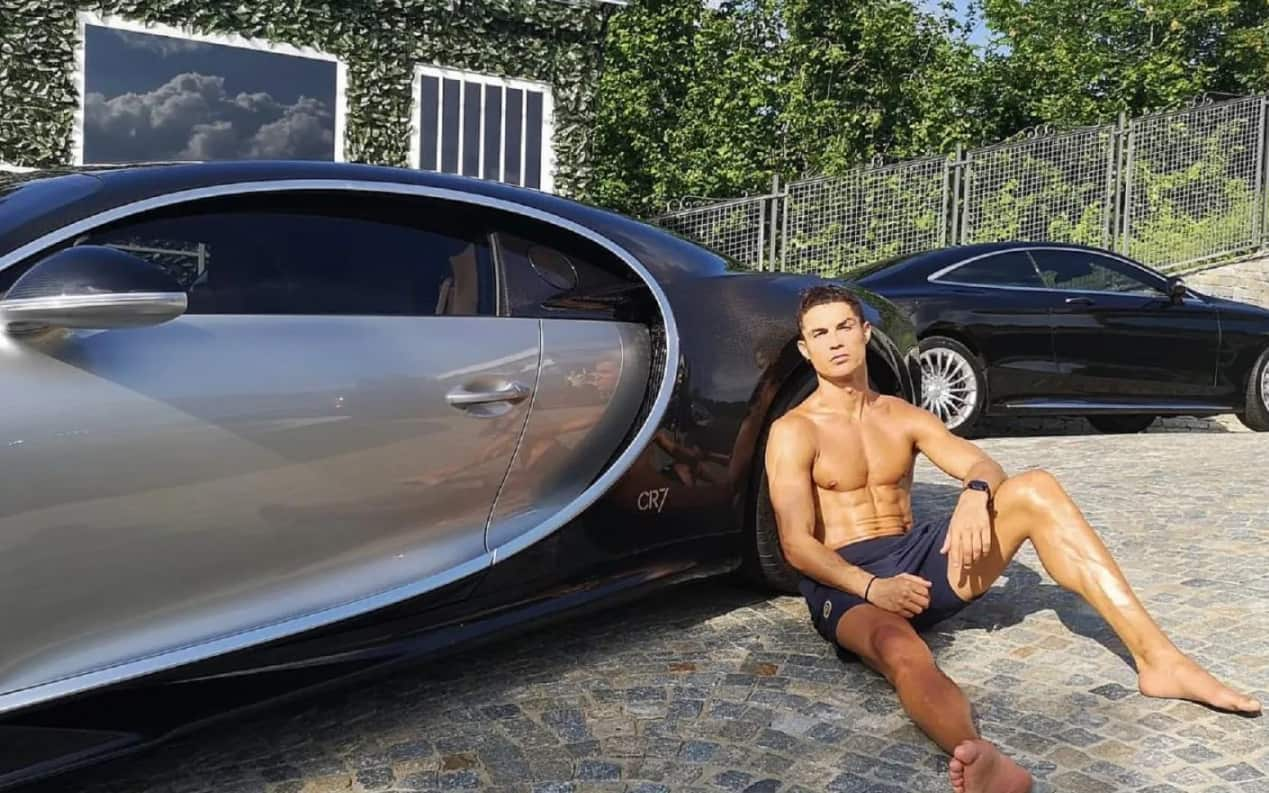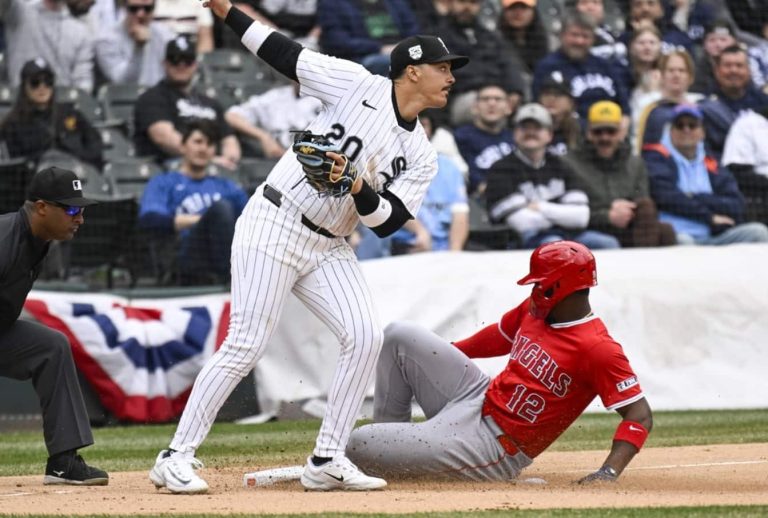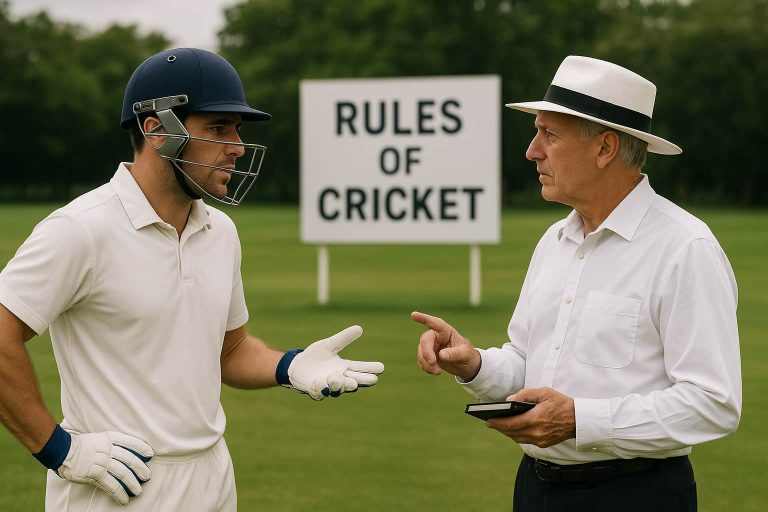Top 10 Richest Footballer in The World 2025
When we discuss the top 10 richest footballer in the world, we often focus entirely on the impressive financial figures.
But behind these staggering numbers lies a more meaningful story – how these extraordinary athletes are using their wealth to shape our world.
Football’s financial elite have unprecedented resources, global platforms, and cultural influence that extend far beyond the pitch.
The true measure of these players’ success isn’t just in their bank accounts but in the lasting impact they create with their resources.
From building hospitals in underserved communities to funding educational initiatives, from creating jobs through business ventures to inspiring millions through personal foundations, these footballers are redefining what it means to be wealthy and successful in the modern era.
Richest Footballer in The World

In this comprehensive guide, we’ll explore the social impact, philanthropy, and legacy-building efforts of the world’s wealthiest footballers.
We’ll look beyond the numbers to understand how these players are transforming communities, addressing global challenges, and creating positive change with their unprecedented resources and influence.
The Impact Ecosystem: How Footballers Create Change
Before examining individual players, let’s explore the primary channels through which wealthy footballers create social impact:
- Charitable Foundations – Organized philanthropy through established foundations
- Direct Community Investment – Building infrastructure in hometown communities
- Business Ventures With Social Purpose – Creating jobs and economic opportunity
- Advocacy and Awareness – Using the platform to highlight important causes
- Educational Initiatives – Funding schools, scholarships, and learning programs
- Healthcare Advancement – Building medical facilities and funding treatment
- Crisis Response – Providing resources during emergencies and disasters
- Youth Development – Creating opportunities for the next generation
Now, let’s examine how each of the ten wealthiest footballers is creating an impact through these channels.
Faiq Bolkiah: The Royal Philanthropist
With his $20 billion fortune, Faiq Bolkiah represents a unique case of philanthropy built upon royal wealth and responsibility.
Impact Focus Areas:
- Educational Development: Supports educational institutions in Brunei through royal family initiatives
- Cultural Preservation: Funds efforts to maintain Brunei’s cultural heritage and traditions
- Sports Development: Invests in grassroots football programs in Brunei
- Economic Diversification: Supports Brunei’s efforts to diversify beyond oil dependency
- Environmental Conservation: Participates in royal family initiatives for rainforest protection
Signature Initiative:
While Bolkiah maintains a relatively low profile compared to other wealthy footballers, his connection to the Brunei royal family links him to their broader philanthropic efforts, particularly in education and cultural preservation. His personal focus appears to be on sports development, using his football experience to inspire young athletes in a country not traditionally known as a football powerhouse.
Impact Approach:
Bolkiah’s philanthropy is characterized by a dignified restraint typical of royal family members. Rather than creating highly publicized personal initiatives, his efforts align with the broader institutional philanthropy of the Brunei royal family, focusing on long-term national development rather than individual recognition.
Cristiano Ronaldo: The Global Humanitarian
With his $903 million fortune, Cristiano Ronaldo has developed one of the most comprehensive humanitarian portfolios in sports.
Impact Focus Areas:
- Children’s Health: Funded pediatric care units in Portuguese hospitals
- Disaster Relief: Provided substantial support after natural disasters worldwide
- Child Hunger: Partnered with Save the Children to address malnutrition
- Cancer Research: Regular donor to cancer research initiatives
- Youth Sports Access: Created programs providing sports opportunities to disadvantaged youth
Signature Initiatives:
Ronaldo’s most significant humanitarian action may be his decision not to have tattoos – reportedly so he can continue donating blood regularly. Beyond this personal commitment, he has made numerous major donations, including €1.5 million to Palestinian children and €600,000 to fund cancer centers in Portugal.
Impact Approach:
Ronaldo’s philanthropy reflects his global brand approach – wide-reaching, highly visible, and professionally managed. While some critics note the publicity that often accompanies his giving, the scale and consistency of his philanthropy demonstrate genuine commitment beyond public relations. His approach leverages his massive platform to raise awareness while also making substantial financial contributions.
Lionel Messi: The Foundation Builder
With his $650 million fortune, Messi has focused his philanthropy through his established foundation.
Impact Focus Areas:
- Children’s Healthcare: Major supporter of hospitals, particularly in Barcelona and Argentina
- Educational Access: Funds schools and educational programs in vulnerable communities
- Youth Sports Development: Creates sports facilities and programs for disadvantaged children
- UNICEF Partnership: Longstanding Global Ambassador addressing children’s needs
- Medical Research: Supports research on childhood diseases
Signature Initiative:
The Leo Messi Foundation, established in 2007, serves as the centerpiece of his philanthropic efforts. The foundation has funded numerous healthcare projects, including helping to build the largest pediatric cancer center in Europe at Barcelona’s Sant Joan de Déu Hospital, to which Messi reportedly donated €3 million.
Impact Approach:
Messi’s philanthropy mirrors his playing style and personality – understated excellence that prioritizes effectiveness over publicity. His foundation operates with professional management and strategic focus, creating sustainable programs rather than one-time gestures. While less vocal about his giving than some peers, the foundation’s work demonstrates a deep commitment to addressing the root causes of social challenges.
Neymar Jr.: The Cultural Influencer
With his $250 million fortune, Neymar has developed a multi-faceted approach to social impact.
Impact Focus Areas:
- Youth Development: Created the Neymar Jr. Institute to serve disadvantaged youth
- Education Through Sport: Uses sports as a vehicle for educational development
- COVID-19 Relief: Made significant anonymous donations during the pandemic
- Disaster Response: Supports communities affected by natural disasters in Brazil
- Cultural Representation: Promotes Brazilian culture and arts globally
Signature Initiative:
The Instituto Projeto Neymar Jr. represents his most significant and sustained philanthropic effort. Established in his hometown of Praia Grande, São Paulo, the institute serves thousands of underprivileged children and their families, providing educational, cultural, and sports programs in an 8,400-square-meter complex.
Impact Approach:
Neymar’s philanthropy reflects his cultural bridge role, connecting Brazilian communities with global resources. His approach combines direct investment in his hometown with leveraging his global platform to highlight Brazilian needs and culture. While sometimes overshadowed by his celebrity lifestyle, his commitment to his institute demonstrates meaningful engagement with community development.
Karim Benzema: The Quiet Benefactor
With his $200 million fortune, Benzema has maintained a relatively low-profile but meaningful approach to philanthropy.
Impact Focus Areas:
- Religious Charity: Regularly participates in Islamic charitable giving traditions
- Hometown Development: Supports community projects in his native Lyon, France
- Youth Opportunity: Funds programs for disadvantaged youth in France and Algeria
- Social Integration: Works to improve opportunities for minority communities in France
- Disaster Relief: Contributes to emergency response efforts in affected regions
Signature Initiative:
While Benzema doesn’t operate a highly publicized foundation, he has made significant contributions to humanitarian efforts, including reported donations to build medical facilities in Palestine and support for various causes in his ancestral Algeria and native France.
Impact Approach:
Benzema’s philanthropic style aligns with his faith-informed, private approach to giving. Islamic traditions emphasize charitable giving without publicity, and Benzema appears to follow this principle. His philanthropy tends to be discovered rather than announced, focusing on effectiveness rather than recognition.
Zlatan Ibrahimović: The Contrarian Benefactor
With his $190 million fortune, Ibrahimović has developed a distinctive approach to social impact that matches his unique personality.
Impact Focus Areas:
- Youth Sports Access: Created opportunities for underprivileged youth to participate in sports
- Mental Health Awareness: Increasingly vocal about psychological well-being in sports
- Swedish Integration: Supports programs for immigrant integration in Sweden
- United Nations Partnership: Worked with the World Food Programme on hunger awareness
- COVID-19 Relief: Launched a fundraising campaign for Italian hospitals during the pandemic
Signature Initiative:
In 2020, Ibrahimović launched a fundraising campaign that collected over €300,000 for hospitals in Italy during the COVID-19 crisis. His famous declaration, “It’s not about me, it’s about Zlatan” when discussing the campaign perfectly captured his unique approach to philanthropy – self-aware, attention-grabbing, but ultimately directed toward positive impact.
Impact Approach:
Ibrahimović’s philanthropic style mirrors his provocative authenticity approach to life. Rather than creating conventional foundation structures, he uses his distinctive voice and persona to draw attention to causes, often with humor and memorable quotes. This approach leverages his unique cultural position to create awareness in ways traditional philanthropy might not achieve.
Kylian Mbappé: The Next-Generation Philanthropist
With his $180 million fortune at just 25 years old, Mbappé represents a new model of athlete philanthropy.
Impact Focus Areas:
- Educational Equity: Created “Inspired by KM” to support 98 children from disadvantaged backgrounds
- Environmental Sustainability: Increasingly vocal about environmental responsibility
- Digital Inclusion: Advocates for technology access for underserved communities
- Child Protection: Works with vulnerable children through various partnerships
- Social Justice: Uses the platform to address discrimination and inequality
Signature Initiative:
Mbappé’s association “Inspired by KM” provides financial and mentoring support to 98 children (representing his birth year, 1998) from diverse backgrounds through their educational journey. The program combines financial assistance with mentorship and exposure to opportunities, creating a comprehensive development approach.
Impact Approach:
Mbappé’s philanthropy reflects a digital-native, systemic change orientation characteristic of his generation. Rather than focusing solely on financial donations, his approach emphasizes mentorship, structural change, and addressing root causes. His comfort using digital platforms to highlight causes and engage supporters represents a model likely to become more common among younger athletes.
Paul Pogba: The Community Connector
With his $125 million fortune, Pogba has focused on creating connections between different communities.
Impact Focus Areas:
- Clean Water Access: Partnered with charity: water to fund wells in Africa
- Religious Understanding: Promotes religious tolerance and understanding
- Youth Empowerment: Supports programs for disadvantaged youth globally
- Anti-Racism Initiatives: Uses a platform to address discrimination in football
- Health Equity: Supports healthcare access in underserved communities
Signature Initiative:
For his 25th birthday in 2018, Pogba launched a charity campaign with charity: water, ultimately raising enough to provide clean water access to thousands of people. His connection to the cause – visiting Guinea and seeing water challenges firsthand – added authenticity to the campaign.
Impact Approach:
Pogba’s philanthropic style reflects his cross-cultural bridge role. His comfort moving between different communities and cultures informs his approach to social impact, focusing on creating connections and understanding. His use of his platform to highlight both global issues like water access and social challenges like racism demonstrates a holistic understanding of interconnected problems.
Antoine Griezmann: The Conscious Capitalist
With his $90 million fortune, Griezmann has developed an integrated approach to business and social impact.
Impact Focus Areas:
- Sustainable Fashion: Created an eco-conscious clothing brand “GZ”
- Equine Therapy: Supports therapeutic horse riding programs for disabled children
- LGBTQ+ Rights: Vocal supporter of inclusion and equality
- Child Welfare: Works with UNICEF on children’s rights initiatives
- Responsible Gaming: Promotes healthy approaches to esports and gaming
Signature Initiative:
Beyond traditional philanthropy, Griezmann has focused on creating businesses with social purpose, particularly his clothing brand that emphasizes environmental sustainability and ethical production. This represents a growing trend among younger athletes to integrate social impact into their business ventures rather than treating philanthropy as separate from business.
Impact Approach:
Griezmann’s approach to impact reflects a values-integrated model where the line between business and philanthropy blurs. Rather than simply donating profits from conventional businesses to causes, he builds social purpose into the business model itself. This approach potentially creates a more sustainable long-term impact than traditional donate-from-profits models.
Mohamed Salah: The Hometown Hero
With his $90 million fortune, Salah has created an extraordinary impact in his native Egypt and beyond.
Impact Focus Areas:
- Community Development: Transformed his hometown of Nagrig with infrastructure investments
- Educational Access: Funds schools and educational opportunities in Egypt
- Healthcare Facilities: Built and equipped hospitals and medical centers
- Women’s Empowerment: Uses a platform to promote gender equality in the Middle East
- Religious Tolerance: Serves as a bridge between different faith communities
Signature Initiative:
Salah’s transformation of his hometown, Nagrig, represents one of the most comprehensive community development efforts by any footballer. He has funded a school, hospital, youth center, and water treatment facility, while also providing ongoing support to hundreds of families. The project demonstrates how targeted local investment can transform an entire community.
Impact Approach:
Salah’s philanthropy exemplifies the hometown hero model, focusing significant resources on transforming his original community while also creating a broader regional impact. His approach combines direct infrastructure investment with using his platform to influence social attitudes, particularly around women’s rights and religious tolerance. His humble public persona enhances his credibility as a messenger for social change.
The Impact Multiplier Effect: Beyond Direct Philanthropy
The social impact of wealthy footballers extends beyond their direct philanthropic activities through several multiplier effects:
1. Behavioral Influence
Research shows that visible philanthropy by high-profile individuals increases charitable behavior among their followers. When Ronaldo or Messi highlight a cause, millions of fans engage with that issue, creating awareness and support that far exceeds the player’s direct contribution.
2. Institutional Leverage
Many footballer foundations partner with established organizations like UNICEF, WHO, or specialized NGOs, bringing not just funding but also visibility to these institutions’ work. This partnership approach multiplies impact by combining the footballer’s resources and platform with the expertise and infrastructure of established organizations.
3. Corporate Activation
Wealthy footballers often influence their corporate partners to support their causes. When Messi highlights a children’s hospital, companies seeking association with him often contribute to that cause. This corporate activation can multiply the financial impact many times over.
4. Policy Influence
The most sophisticated player foundations engage with policy change, not just direct service. By highlighting systemic issues and demonstrating effective solutions, they can influence government policy and institutional practices, creating sustainable change beyond what direct funding could accomplish.
5. Cultural Shift
Perhaps the most significant multiplier is the cultural influence these players wield. When Salah demonstrates religious tolerance or Pogba speaks against racism, they shape attitudes among millions of followers, potentially creating generational shifts in perspective that no amount of direct funding could achieve.
Key Impact Models: Different Approaches to Change
Looking across these ten wealthy footballers, we can identify several distinct models of social impact:
| Impact Model | Key Examples | Primary Characteristics | Strengths |
|---|---|---|---|
| Hometown Hero | Salah, Neymar | Deep investment in the place of origin | Creates transformative local change |
| Global Humanitarian | Ronaldo, Messi | Wide-reaching programs addressing major issues | Leverages global platform for awareness |
| Institutional Builder | Messi, Mbappé | Creates sustainable organizations and programs | Builds long-term impact infrastructure |
| Cultural Influencer | Pogba, Salah | Uses the platform to shift social attitudes | Creates change beyond what money alone can achieve |
| Conscious Capitalist | Griezmann, Ronaldo | Integrates social purpose into business ventures | Creates sustainable funding for social impact |
| Private Benefactor | Benzema, Bolkiah | Gives without publicity or structure | Maintains focus on impact rather than recognition |
| Digital Activist | Mbappé, Pogba | Uses social media to highlight causes | Engages younger audiences in social issues |
These models are not mutually exclusive, and many players combine elements of different approaches as their philanthropy evolves.
Also Check:
- Umpire Salary in IPL
- Most Hardest Sports in The World
- Which IPL Team is Looking Dangerous in 2025
- Which is Top Fixing Team in IPL
- Most Expensive Sports in the World
- Top 10 Biggest Cricket Franchise Team in The World
Conclusion: The Real Wealth of Football
Beyond the billions and millions that define the top 10 richest footballers in the world financially, we find a different and perhaps more meaningful kind of wealth – the impact these extraordinary athletes create in communities around the globe.
From Bolkiah’s royal philanthropy to Salah’s hometown transformation, from Ronaldo’s global humanitarian efforts to Mbappé’s next-generation approach, these players demonstrate that true wealth lies in what you do with your resources, not just in accumulating them.
The most inspiring aspect of these players’ social impact is how it reflects their unique personalities, backgrounds, and values.
Ronaldo’s highly visible global giving mirrors his public persona, while Benzema’s quieter faith-informed charity reflects his more private nature.
Messi’s foundation operates with the same consistent excellence he displays on the field, while Ibrahimović’s provocative philanthropy matches his larger-than-life character.
As football’s economics continue to generate unprecedented player wealth, the social impact potential of these athletes grows accordingly.
The next generation of wealthy footballers will likely build upon these established models while developing new approaches that leverage evolving technologies, social movements, and global challenges.
For fans, communities, and aspiring players, these impact stories offer a reminder that football’s greatest value isn’t measured on transfer market websites or salary databases but in the hospitals built, the children educated, the communities transformed, and the attitudes changed through the influence of the beautiful game and its wealthiest practitioners.






